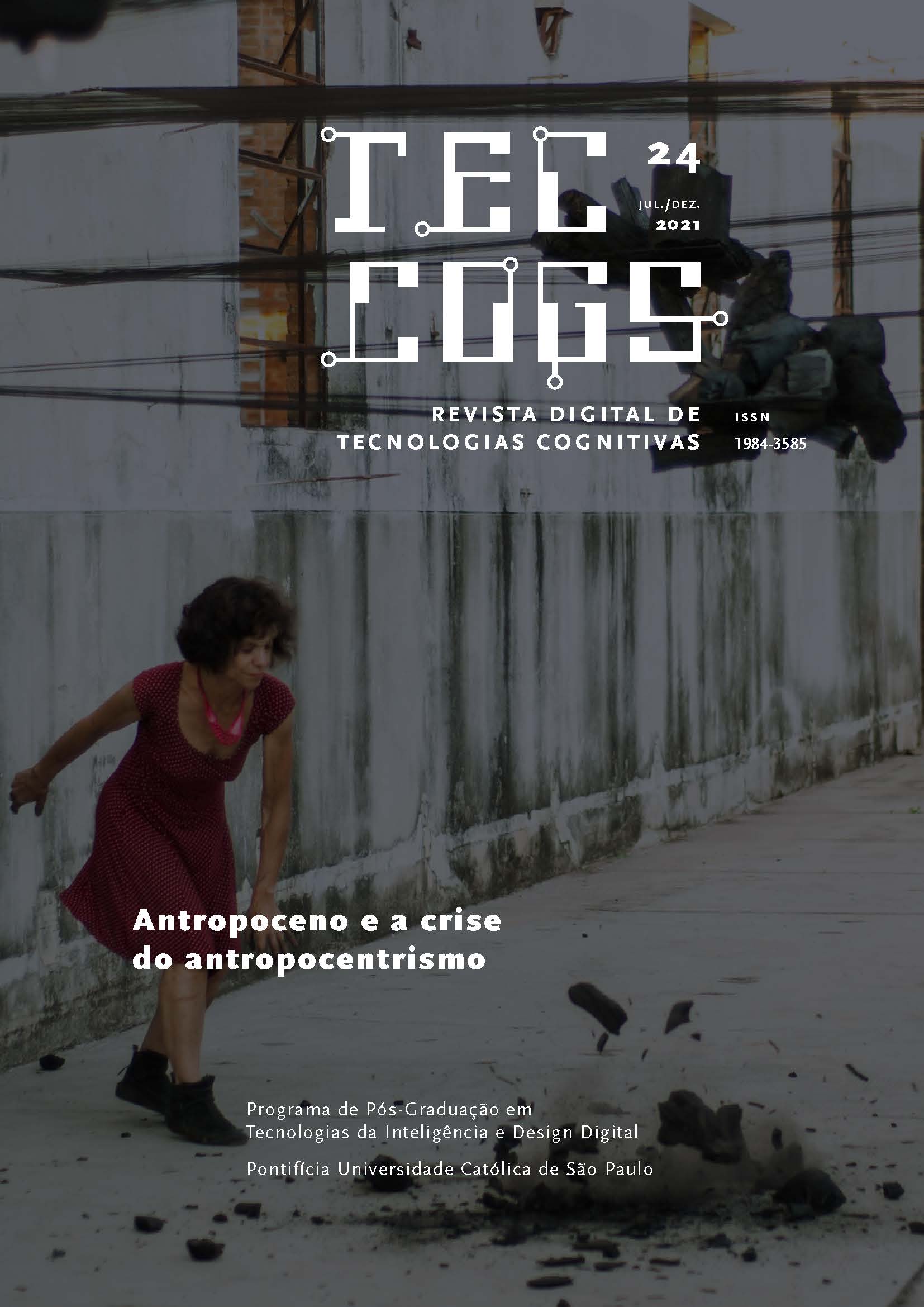Editorial
Anthropocene and the crisis of anthropocentrism, getting the problem
DOI:
https://doi.org/10.23925/1984-3585.2021i24p6-13Abstract
Anthropocentrism has been put in check in the field of cultural and anthropological studies with great vigor, especially with the crisis that began in the 1960s, which has as its axis the representation of alterity and authenticity in ethnographic studies, as James Clifford and George Marcus point out in Writing Culture Debates (1986). Indeed, the post-1968 period shed new light on how to talk about other peoples, other existences, and reflect the differences that humanism had hitherto left out.
The Vitruvian Man (cf. BRAIDOTTI, 2013; HARAWAY, 2016), the image that best catalyzes anthropocentrism with Leonardo da Vinci's features, which depicts a man occupying the center of the sphere of the universe corresponds to a pillar of Modernity, is suddenly turned upside down. With The Words and Things: an archaeology of the human sciences (2001), Michel Foucault asks the seminal question to shake the fragile walls of classical humanism: "What counts as human?" This question provokes seismic tremors for what lies outside this premise, that is, what differs, on levels and scales, from the white, heterosexual, European man. The crisis of anthropocentrism opens up a huge range of perspectives that unfolds across anthropology, biology, semiotics, postcolonial studies, feminism, philosophy, technological studies, linguistics, etc. [...].
References
BRAIDOTTI, Rosi. The posthuman. Cambridge: Polity Press, 2013.
CLIFFORD, James; MARCUS, George E. Writing culture: the poetics and politics of Ethnography. Berkeley, CA: University of California Press, 1986.
DANOWSKI, Débora; VIVEIROS DE CASTRO, Eduardo. 2014. Há mundo por vir? Ensaio sobre os medos e os fins. Desterro [Florianópolis]: Cultura e Barbárie, Instituto Socioambiental.
FOUCAULT, Michel. The order of things: An archaeology of the human sciences. London: Routledge, 2001 [1966].
GRAY, Ros; SHEIKH, Shela. The wretched Earth. Third Text, v. 32, n. 2-3, p. 163-175, 2018.
HARAWAY, Donna. Staying with the trouble: making kin in the Chthulucene. Durham, NA: Duke University Press, 2016.
KING Katie. Media in transcontextual tangles: why it matters. West Lafayette: Berlin Memorial Lecture Purdue University, 2014.
LAST, Angela. We are the World? Anthropocene Cultural Production between Geopoetics and Geopolitics. Sage Journal: Theory, Culture & Society, v. 34, n. 2-3, p. 147-168, 2017.
NODARI, Alexandre. O extraterrestre e o extra-humano: notas sobre “a revolta kósmica da criatura contra o criador”. Landa, v. 1, n. 2, p. 251-272, 2013. Disponível em: revistalanda.ufsc.br/PDFs/ed2/Alexandre%20Nodari.pdf. Acesso em: 17 jan. 2022.
TSING, Anna Lowenhaupt. The mushroom at the end of the world: on the possibility of life in capitalist ruins. Princeton, NJ: Princeton University Press, 2015.
VIVEIROS DE CASTRO, Eduardo. Os pronomes cosmológicos e o perspectivismo ameríndio. Mana, v. 2, n. 2, p. 115-144, 1996.
Downloads
Published
How to Cite
Issue
Section
License
Copyright (c) 2022 Marina Costin Fuser

This work is licensed under a Creative Commons Attribution 4.0 International License.
Esta revista oferece acesso livre imediato ao seu conteúdo de acordo com a licença CC BY 4.0, em conformidade com a definição de acesso público do Directory of Open Access Journals (DOAJ).
Ao submeter um texto à TECCOGS, os autores asseguram que o material submetido à avaliação e eventual publicação não infringe de modo algum qualquer direito proprietário ou copyright de outros. Com a submissão, o autor transfere em efetivo os direitos de publicação do artigo para a TECCOGS. A transferência de copyright cobre os direitos exclusivos de publicação e distribuição do artigo, incluindo reimpressões ou quaisquer outras reproduções de natureza similar, além de traduções. Os autores mantém o direito de usar todo ou partes deste texto em trabalhos futuros de sua autoria e de conceder ou recusar a permissão a terceiros para republicar todo ou partes do texto ou de suas traduções. Para republicar números da revista na íntegra, qualquer interessado precisa obter permissão por escrito tanto dos autores como também dos editores da TECCOGS. A TECCOGS por si só pode conceder direitos relativos a emissões de periódicos como um todo.
Imagens com direitos autorais pertencentes a terceiros, que não foram concedidos ao autor do texto, devem ser utilizadas somente quando necessárias à análise e ao argumento da pesquisa, sempre indicando as respectivas fontes e autoria. A TECCOGS dispensa o uso de imagens meramente ilustrativas. Se desejar ilustrar um conceito, o autor deve indicar, em forma de URL ou referência bibliográfica, uma referência em que a ilustração esteja disponível.
---------------------------------------------------------------------------------
This journal offers free immediate access to its content under CC BY 4.0, in accordance with Directory of Open Access Journals' (DOAJ) definition of Open Acess.
When submitting a text to TECCOGS, authors ensure that the material submitted for evaluation and eventual publication does not infringe any proprietary right or copyright. Upon submission, authors effectively transfer the publication rights of the article to TECCOGS. The copyright transfer covers the exclusive rights of publication and distribution of the article, including reprints or any other reproduction of similar nature, in addition to translations. Authors retain the right to use all or parts of the text in future works of their own, as well as to grant or refuse permission to third parties to republish all or parts of the text or its translations. In order to fully republish issues of the magazine, anyone interested must obtain written permission from both the authors and the editors of TECCOGS. TECCOGS alone can grant rights relating to issues of journals as a whole.
Images whose copyright belongs to third parties that have not been granted to the author of the text should be used only when essential for the analysis and argument, always indicating theirs respective sources and authorship. TECCOGS dismisses any use of merely illustrative images. To illustrate a concept, the author must indicate, in the form of a URL or bibliographic reference, a source in which the illustration is available.


